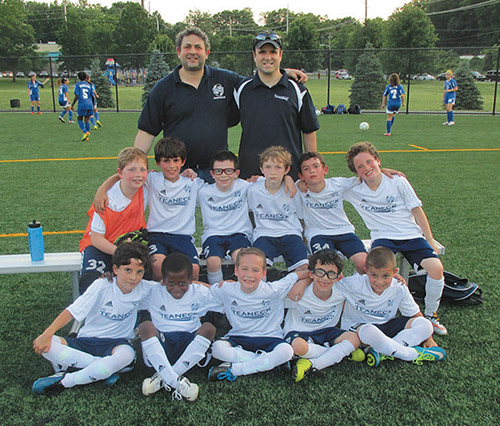
One cold December night more than a decade ago, my new boyfriend and I sat hunched over his computer screen debating which nonprofits would receive his year-end donations. It was an unusual date considering that we had only known each other for about two weeks.
We met on the Upper West Side as my first semester of graduate school for nonprofit management entered finals week. He was working as a software engineer in the city and lived just a few blocks away. He wanted to donate ma’aser (tithing), and I had industry expertise, so he asked me for advice. Thankfully, he liked me enough to sit through what became hours of research together—and marry me the following year.
I’d bet that the majority of your tzedaka happens the same way. Ok, not on a date, but in a mad dash as the end of the fiscal year approaches.
You’re not alone; about one-third of all annual giving happens in December and about 10% of donations occur on the last three days of the year.
Beloved religious institutions, critical charitable services and arts foundations exist and serve us all year round. But most of their budgets come in a huge wave in the middle of the winter.
The fact that this reality is a disservice to them is evident. What’s less obvious is that it’s also a disservice to you. It means that when you donate your hard-earned money, you’re not necessarily giving in ways that echo your deepest ideals and make the largest impact.
Donating to nonprofits is your chance to invest in your vision of the world. You might donate to a local food pantry in the hope that no child goes to bed hungry. You might donate to a lone soldier initiative so no Israeli soldier feels alone. Or you might donate to teams researching cures for childhood cancers so every child and family has hope for a brighter future.
Come December 29, you don’t have the time to deeply contemplate your goals, research prospective recipients and give in ways that maximize your money’s impact.
Since my husband and I got married more than 10 years ago, our lives and giving practices have evolved. More money is given throughout the year instead of at the end of December.
Learn from our mistakes; this is your mid-year reminder to give throughout the year. Skip the end-of-year rush to make sure your hard-earned money works harder for the causes you care about.
Here are a few more ways to give more strategically this year:
Create a Giving Portfolio: Take inventory of all your donations last year and see if the whole picture aligns with your values. Decide if you want to consolidate your efforts, add specific causes to your portfolio or even grow the percentage of your income that you donate overall.
Do Your Research: Use the gift of time to do your research. Tools such as Guidestar or Charity Navigator help you dig deeper into an organization’s fiscal history. Take the time to have deeper conversations with development professionals. Allow yourself to really get to know an organization that speaks to you.
Choose Unrestricted Monthly Giving: One of the most effective ways to donate money is to commit to an unrestricted monthly gift. It helps keep the lights on and can be relied upon when an organization projects its budget and capacity.
Find a Project You Love: Many donors find it meaningful to fund a specific project that ignites their passion. It’s an incredible feeling to know that a specific improvement, initiative or trip happened all because of you.
Don’t Overlook Smaller Places: Ask friends and family about smaller organizations that have touched their lives. With less money and fewer staff members, it’s harder for smaller places to reach you. But many small, local nonprofits do powerful work and your donation makes a more significant difference to their bottom line.
Don’t let this opportunity pass you by; choose to take another step toward the world you imagine today.
Faigy Gilder is a nonprofit communications consultant who lives in Fair Lawn, New Jersey, with her husband and two daughters. She has worked in the nonprofit sector for more than a decade and earned dual graduate degrees from NYU in nonprofit management and Judaic studies. She can be reached at: [email protected]













